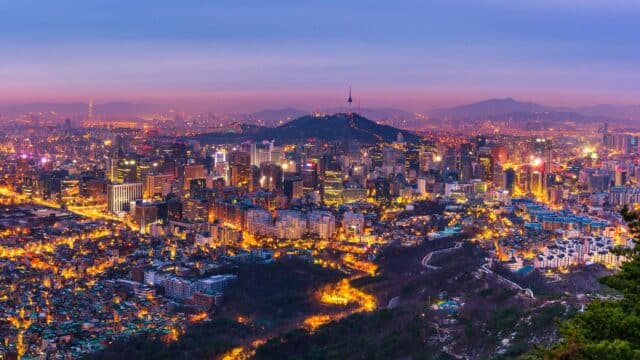Renewable Energy
San Miguel Corporation’s LNG Projects and their Implications for the Company and the Philippines
Natural gas has successively been shown to oppose the goals of solving the energy crisis. It causes environmental issues and won't help the Philippines decarbonise. Gas is now an impractical choice for the San Miguel Corporation, the regions biggest LNG developer.
High LNG Prices in Asia: Risk Causing Permanent Demand Drop
The demand for LNG in Asia is plummeting. Developing nations can't bear with the high gas prices and are actively looking toward renewables. Even fossil fuel stewards are starting to have second thoughts. And if the high gas prices continue, which seems likely, the demand drop might be irreversible.
Labour Climate Change Policy 2022 in Australia – Ambitious, but Facing Lots of Challenges
Australia is on the receiving end of the harshest impacts of climate change. The IPCC says Australia is racing towards a future of similar or even worse disasters. Labours new climate policy offers hope.
The Philippines’ Climate Policies and the Priorities for the New President
The new president and his administration will have to lead the Philippines through one of the most critical moments in the battle against climate change. Considering how much is at stake for the island country, the new leadership should pursue ambitious climate policies that abandon fossil fuels and prioritise renewables.
Elections in Asia 2022 and Their Effect on the Region
The recent elections in South Korea, Australia and the Philippines have helped paint a picture of the region's net-zero journey. While the new leaders of the three countries have announced some ambitious goals, the overall sense is that more could be done, considering the vast renewable energy potential of the region.
Promising Renewable Energy Statistics 2022 – Revealed By New Global Status Report
Despite the tremendous growth in new renewable energy additions, the energy system transformation is sluggish and fossil fuels continue to be the backbone of the global energy system. Without more engagement on the political front, global decarbonisation will remain a pipe dream.
Will Oil-Producing Countries Remain Stable in a Decarbonising World
Fossil fuel-dependent countries should be actively looking to balance the trade-off between transitioning to a renewable energy-dominated power system and maintaining a stable economy without putting pressure on society. While the goal is challenging, it is possible.
The Proposed Vietnam PDP8 Update and the Risks From the Coal Pivot
The recently proposed update to the Vietnam PDP8 draft risks deteriorating the country's clean energy progress. Experts are united around the idea that the drafted coal pivot will surface various negatives, including lack of financing, slower clean energy transition, increased climate impact, and increased reputational risk for the country.

South Korea’s Renewable Energy Transition and Its Barriers
An analysis of the main obstacles that slow down the renewable energy transition in South Korea and the country's efforts to achieve net-zero by 2050.
South Australia’s Renewable Energy Revolution
South Australia's renewable energy revolution has just begun. It is the first Australian state to reach and exceed its renewable targets - made possible through collaborative efforts and appropriate legislative processes and public policies.
A New Supply Chain Crunch: Renewable Energy Commodities
The next decade will see a boom in demand for renewable energy commodities. However, the world is seemingly not ready to meet it and supply chain crunches from high-impact, low-probability events like the COVID-19 might further complicate the process, delaying the global decarbonisation progress.
Liberal vs Labour – Who Has the Best Energy Policy in the 2022 Australian Election?
The energy policies of the Labour and the Liberal parties will play a crucial role in determining the outcome of the upcoming election in Australia. The importance of decarbonisation strategies and taking action has never been greater. Judging by the parties' announced plans, they are up for the challenge.
Most Popular
Categories
-
10
-
35
-
126
-
4
-
17
-
46
-
52
-
11
-
10
-
15
-
24
-
6
-
1
-
5
-
6
-
285
-
200
-
17
-
24
-
1
-
1
-
23
-
41
-
44
-
88
-
18
-
86
-
41
-
17
-
11
-
43
-
54
-
86
-
299
-
22
-
44
-
36
-
11
-
42
-
36

